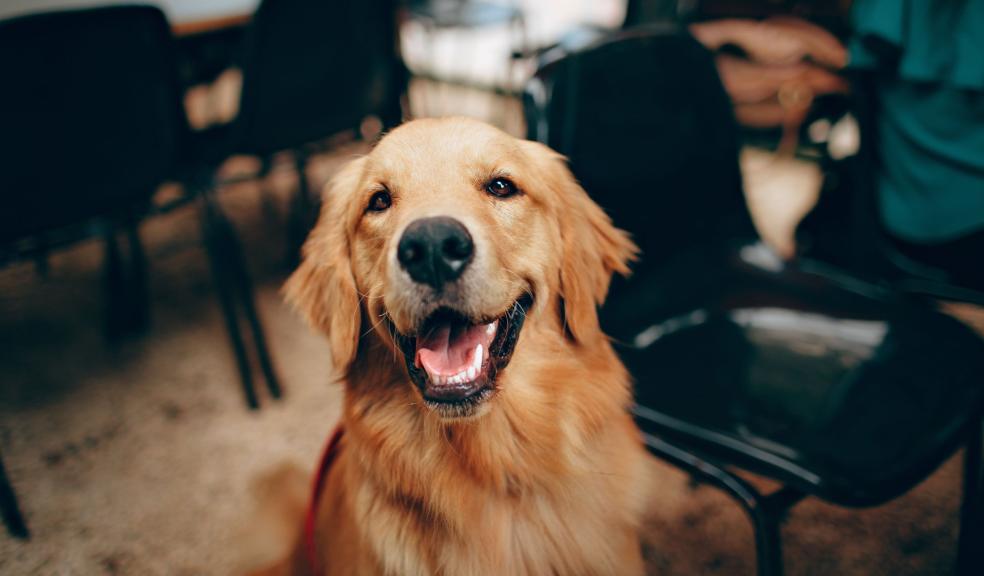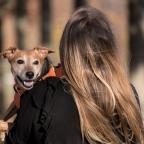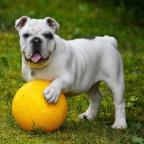
Expert shares top tips to keep your pets happy when you're away from home
Dogs are incredibly social animals, and with more and more of us are returning to the office and busy social calendars, this means our furry friends are more likely to be left at home. Leaving your pet alone for too long can be a distressing experience, especially if they are used to regular company.
Bella & Duke's Natural Canine Behaviourist, Caroline Spencer Dip.AdvCanBhv, shares her recommendations for monitoring and keeping your pet occupied whilst home alone.
1. Make snacks fun and time consuming
Our pets can quickly get bored when left alone and without us there to shower them with affection, it's important to ensure they have things to do and play with whilst we are gone to keep them engaged and excited. Leaving a chew or a puzzle treat can help alleviate boredom and keep your furry friend satisfied. Bella & Duke's Yak Milk dog chews are the perfect long-lasting natural treat to keep your dog calm and content for long periods of time. The chews keep your dog entertained for hours and are proven to help relieve separation anxiety. Alternatively, try using puzzles or other interactive toys that hide your pup's favourite treats and keep them busy and entertained!
2. Create a safe cosy space
It's important that your dog has a safe space it can retreat to when alone in the house. A blanket or piece of clothing with your scent can often help anxious dogs feel more comfortable.
3. Use a monitor
For owners who are worried about leaving their furry friends home alone, there are a variety of pet camera options for monitoring your dog while you're away. Pet cameras let you keep tabs on your dog 24/7, from wherever you are. Being able to check in on them in this way can help to alleviate anxiety for pet parents.
4. Keep the house dog-friendly
It's important to remember that when left alone, When left alone for prolonged periods, some dogs may become disruptive as a way to express their frustration. This can appear in many ways such as urination, barking, chewing furniture or trying to escape. Safety is the most important measure when leaving your dog home alone so make sure your pup can't reach cords, harmful chemicals or anything else that could pose a danger.
Depending on your dog, crate training may be a good idea to ensure your dog is calm and comfortable whilst you're away. It's always important to remember that crate training isn't a one size fits all solution, and this may not be the best option for you and your dog.
5. Leave the radio on
Just like us humans, music can be a great stimulate for dogs. Studies have shown that leaving music playing for your dog can introduce variety into their day and combats boredom. It's best to play music with a low dynamic range that mimics their own heartbeat and avoids startling them. Whilst we're sure each pup has its own music taste; studies have shown that reggae and soft rock showed the highest positive changes in behaviour. Bella & Duke has put together its own Spotify playlist with the best music to ensure your pet is calm and relaxed.
Caroline Spencer, Natural Canine Behaviourist at Bella & Duke, added: "Dog parent guilt is a real thing and no matter how much time or affection we give them, we always find it hard to leave them behind. Implementing small steps into your everyday life is a great way of preventing separation anxiety and making it a time that your dog can actually enjoy. Remember every dog is different so take lots of time to go at a speed that works for them and creates longer, lasting results."
It's important to remember that dogs should not be left alone for long periods of time. Dogs older than 6 months should be left alone for no longer than 4 hours at a time. If this is difficult, the absolute maximum time for them to be alone is 8 hours, but this is only recommended if your dog has a way to get outside for a bathroom break. This time frame might change depending on your dog's age, breed, and personality."







